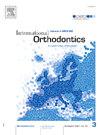A cross-sectional analysis of the reliability, content and readability of orthodontic retention and retainer informed consent forms
IF 1.9
Q2 DENTISTRY, ORAL SURGERY & MEDICINE
引用次数: 0
Abstract
Objective
The aim of the study was to determine the reliability, quality and readability of content contained within informed consent forms concerning orthodontic retention and retainers provided by orthodontic treatment providers.
Methods
An online search strategy identified informed consent forms for evaluation. The DISCERN instrument was used to determine content reliability. Each form was assessed for the presence of pre-determined content regarding 11 domains. Analysis for quality of the domain content was via a 4-point scoring scale. The Simple Measure of Gobbledegook (SMOG) and the Flesch-Kincaid Grade-Level (FKGL) were employed to determine readability.
Results
Thirty-four forms satisfied selection criteria. The majority (n = 20; 58.8%) were sourced from websites in the US, with most (n = 22; 64.7%) from specialist orthodontist websites. The mean (SD) DISCERN score per form was 31.9 (4.5). The mean (SD) number of domains present within each form was 7.76 (1.65). The mean (SD) number of points scored per form was 14.82 (3.01) from a maximum of 33. Information regarding retainer review and relevant potential impacts on quality-of-life was lacking and scored poorly. The requirement for lifetime retention was stated in 25 (73.5%) forms. Forms sourced from specialist orthodontist websites scored higher (P = 0.016) than those sourced from general dentist and multi-disciplinary clinic websites. The median (IQR) SMOG and FKGL scores were 10.11 (9.55) and 9.95 (9.18) respectively.
Conclusions
The reliability and quality of the informed consent forms concerning orthodontic retention and retainers was generally poor. The readability of the forms failed to meet recommended guidelines, meaning that many are likely not to comprehend the information provided.
正畸固位和固位知情同意书的可靠性、内容和可读性的横断面分析
目的本研究的目的是确定正畸治疗提供者提供的正畸固位器和固位器知情同意书中内容的可靠性、质量和可读性。方法采用在线搜索策略识别知情同意书进行评估。采用DISCERN仪器测定内容信度。评估每个表单是否存在11个域的预先确定的内容。领域内容的质量分析是通过一个4分计分量表进行的。文章的可读性采用Simple Measure of Gobbledegook (SMOG)和Flesch-Kincaid grade level (FKGL)进行评定。结果34份表格符合筛选标准。多数(n = 20;58.8%)来自美国网站,大多数(n = 22;64.7%),来自专业正畸医生网站。每个表格的平均(SD)辨别得分为31.9(4.5)。每种形式中存在的域的平均(SD)数为7.76(1.65)。每个表格的平均得分(SD)为14.82(3.01)分,最高为33分。关于保留器审查和对生活质量的相关潜在影响的信息缺乏,得分很低。25份(73.5%)表格列出了终身留存的要求。来自专科牙医网站的表格得分高于来自普通牙医和多学科诊所网站的表格(P = 0.016)。烟雾和FKGL评分中位数(IQR)分别为10.11(9.55)和9.95(9.18)。结论正畸固位和固位器知情同意书的可靠性和质量普遍较差。表格的可读性不符合推荐的指导方针,这意味着许多人可能无法理解所提供的信息。
本文章由计算机程序翻译,如有差异,请以英文原文为准。
求助全文
约1分钟内获得全文
求助全文
来源期刊

International Orthodontics
DENTISTRY, ORAL SURGERY & MEDICINE-
CiteScore
2.50
自引率
13.30%
发文量
71
审稿时长
26 days
期刊介绍:
Une revue de référence dans le domaine de orthodontie et des disciplines frontières Your reference in dentofacial orthopedics International Orthodontics adresse aux orthodontistes, aux dentistes, aux stomatologistes, aux chirurgiens maxillo-faciaux et aux plasticiens de la face, ainsi quà leurs assistant(e)s. International Orthodontics is addressed to orthodontists, dentists, stomatologists, maxillofacial surgeons and facial plastic surgeons, as well as their assistants.
 求助内容:
求助内容: 应助结果提醒方式:
应助结果提醒方式:


